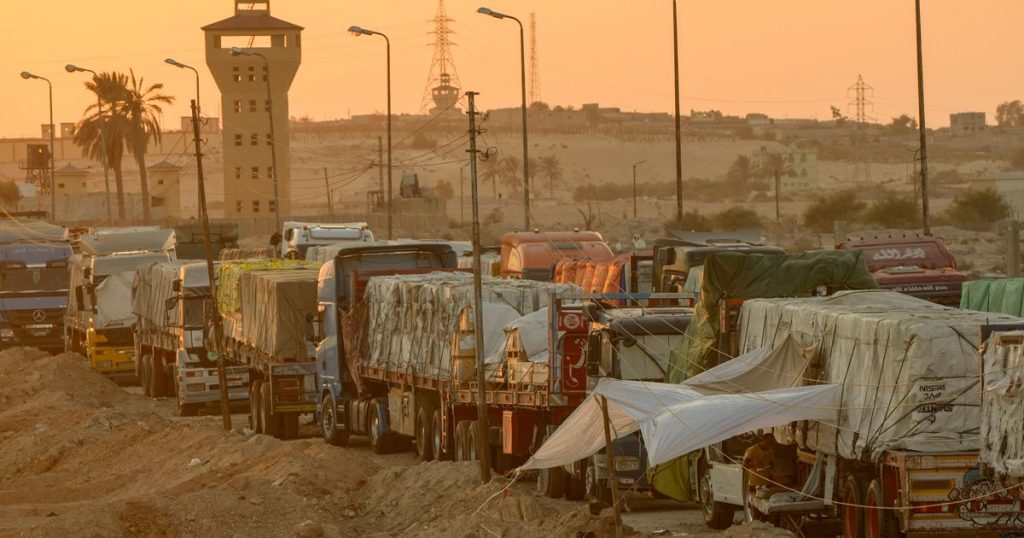An Israeli strike on an area in the Gaza Strip led to the deaths of at least 40 people and injured 60 others. The strike occurred in the Mawasi coastal community near Khan Younis, which is a designated humanitarian zone by the Israeli military. The area had become a refuge for Palestinians displaced by the Israel-Hamas war. The Israeli military claimed that the strike targeted “significant Hamas terrorists” operating within a command-and-control center, while Hamas denied these accusations. Footage from the site showed deep craters, destroyed tents, and rescue workers searching for survivors.
The Israeli military stated that they used “precise munitions, aerial surveillance and additional means” to limit civilian casualties during the strike. However, Gaza’s Health Ministry reported that over 40,000 Palestinians have been killed since the start of the war, with the majority being civilians. The widespread destruction caused by the conflict has displaced around 90% of Gaza’s population of 2.3 million, many of whom have been displaced multiple times. The situation has led to a humanitarian crisis in the region, with urgent medical and aid needs for the displaced population.
Hamas-led militants were responsible for an attack on Israel on October 7, resulting in the deaths of 1,200 people, mostly civilians. The militants also abducted 250 people, with around 100 still being held hostage. The ongoing conflict and violence have strained resources and exacerbated the suffering of the Palestinian population. The United Nations agency responsible for aid in Gaza reported that an Israeli military convoy had halted their activities for over eight hours, disrupting a polio vaccination campaign in northern Gaza. The situation highlights the challenges faced by humanitarian workers in providing vital services to vulnerable populations in conflict zones.
The head of the UN agency, Philippe Lazzarini, expressed concerns about the safety of staff and the need for protection in accordance with international humanitarian law. The incident with the convoy and threats against UN staff underscore the risks faced by aid workers in delivering essential services in conflict-affected areas. The polio vaccination campaign was launched after the first case of polio in 25 years was discovered in Gaza, highlighting the fragility of the healthcare system in the region. The Israeli military did not immediately respond to the incident involving the convoy, raising questions about the coordination and respect for humanitarian operations in the conflict zone.
The escalating violence and humanitarian crisis in Gaza require urgent international attention and action to protect civilians, provide aid, and facilitate a peaceful resolution to the conflict between Israel and Hamas. The indiscriminate attacks on civilian populations, the displacement of thousands of people, and the disruption of essential services by both sides further exacerbate the suffering of the Palestinian population. The international community, including the United Nations, must work towards a sustainable ceasefire, humanitarian access, and a comprehensive peace process to address the root causes of the conflict and ensure the protection and well-being of all civilians in the region. The situation in Gaza underscores the need for immediate action and solidarity to prevent further loss of life and alleviate the suffering of those affected by the ongoing violence.








